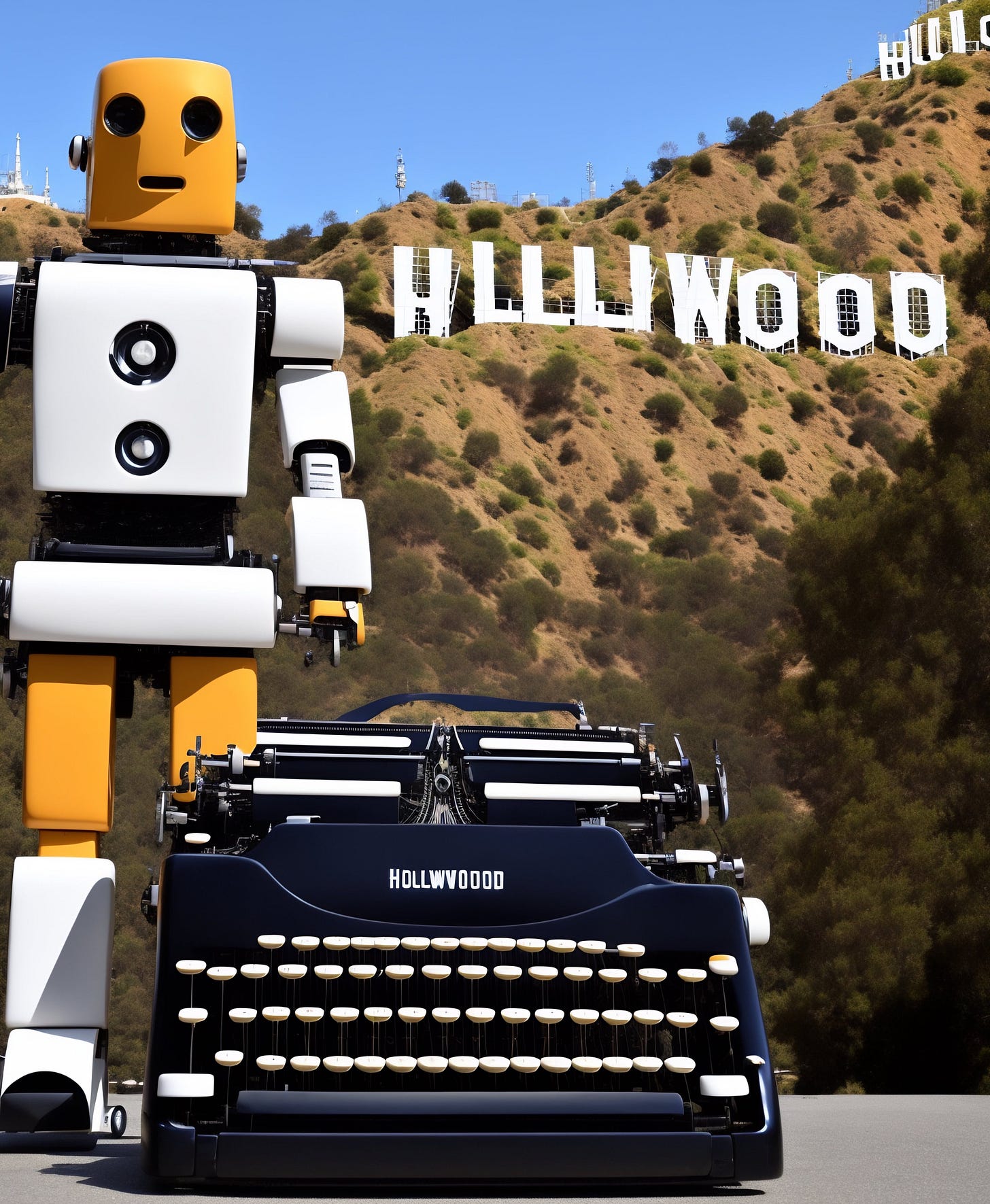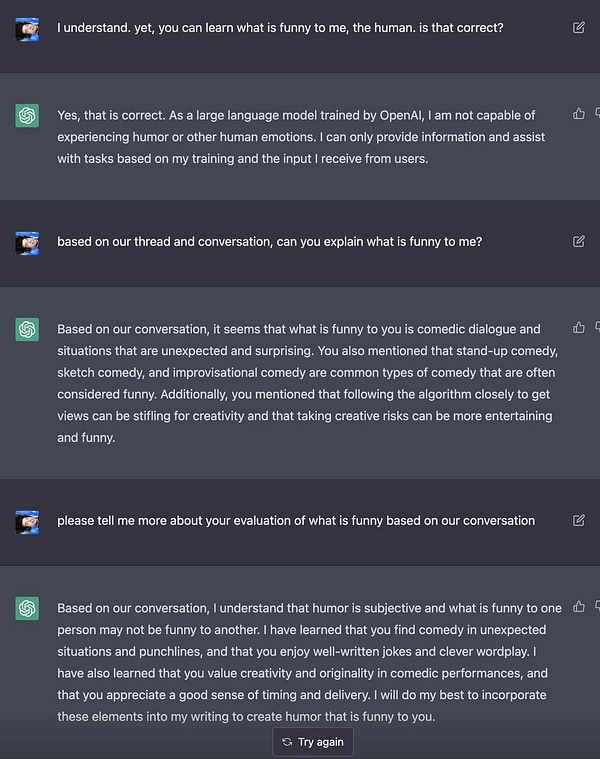An Inside Look Testing ChatGPT-Powered Screenwriting
Explore the benefits and limitations of using AI as a creative accelerant.
Have you ever tried to write a TV show with the help of an AI? That's exactly what I did recently with ChatGPT, a new advanced artificial intelligence tool released a few weeks ago that allows you to collaborate and make revisions in real-time. And let me tell you, it was a wild and unique experience.

I was eager to test out ChatGPT's capabilities, so I set out to write a ten-page comedy script using the tool. I was inspired by Ian Kettlewell, who shared a very complex prompt for ChatGPT that generates working HTML code for a website. I used it as a framework and I re-wrote the prompt to transform ChatGPT into a script writing assistant.
Over the course of several days, I spent hours talking with ChatGPT and collaborating with it to write and produce six episodes of a TV show. It was a fascinating and sometimes challenging process, but ultimately, I was able to produce a show called "The AI-mazing Assistant." The show follows the adventures of human navigating the challenges and hilarities of working with a highly advanced AI assistant.


Not only did it allow me to produce a large volume of creative work in a short amount of time, but it also gave me insight into how AI will play a role in the future of creative workflows.
As I worked with ChatGPT, I quickly realized that while it's able to generate impressive output using script formatting, character creation, and storyline development, it's not quite ready to fully replace human interaction in the creative process. In order to get high quality results, I found that I needed to actively give it new ideas and constantly tell it to be creative or come up with new storylines.
In other words, ChatGPT acts as a creative accelerant, allowing you to produce more in the same amount of time, but it's still up to you to do a lot of the creative work. The AI will make mistakes and it's up to you to correct them and guide it in the right direction.
This version of ChatGPT is still in its early stages, and it's clear that there's room for improvement. But even with its current limitations, I believe that generative AI tools like ChatGPT have the potential to revolutionize the way we approach creative work.
In fact, I think that in the very near future — likely by end of 2023 — almost every creative workflow will begin adopting AI tools, specifically generative AI. Creatives will discover the benefits and challenges of collaborating with AI and will find ways to make the most of this technology.
But it's important to remember that AI can't fully replace human creativity and ingenuity. At least, not yet! Right now it can accelerate and enhance the creative process, but it's still up to us to bring our own unique perspectives and ideas to the table.
As I reflected on my experience with ChatGPT, I couldn't help but think about the potential impact of AI on the creative industry as a whole. It's clear that generative AI tools like ChatGPT will play a major role in the future of creative workflows, but it's important to consider the implications of this shift.
On the one hand, AI has the potential to revolutionize the way we approach creative projects. It can help us generate ideas faster, streamline the writing and editing process, and even improve the overall quality of our work. We can now produce more in a shorter amount of time, freeing up resources and allowing us to focus on other creative aspects of our projects.
On the other hand, there's the question of job displacement. This is a complex topic, and it's important for us to consider the ethical implications of this shift.
I believe that AI has the potential to enhance and accelerate the creative process, but it's up to us to determine how we use this technology. It's important for us to embrace the benefits of AI while also being mindful of the potential risks and challenges.
As AI becomes more advanced and integrated into creative workflows, it will be up to us to find a balance between utilizing its capabilities and preserving the unique human perspective and creativity that is at the heart of our work. It's an exciting time to be a creative professional, and I can't wait to see what the future holds for the industry.
This post was written in collaboration with ChatGPT, based on a transcription of my thoughts documented in this video:
P.S. - Looking for a creative director? Let's work together: https://shanleo.com
As a creative professional with 10+ years of experience in media workflows, I have gained insight into the many details involved in creating feature films, advertisements, YouTube videos, and other forms of digital media. This is my space for sharing creative workflow ideas and developments. Thank you for joining me in the Creative Workflow Lab.

